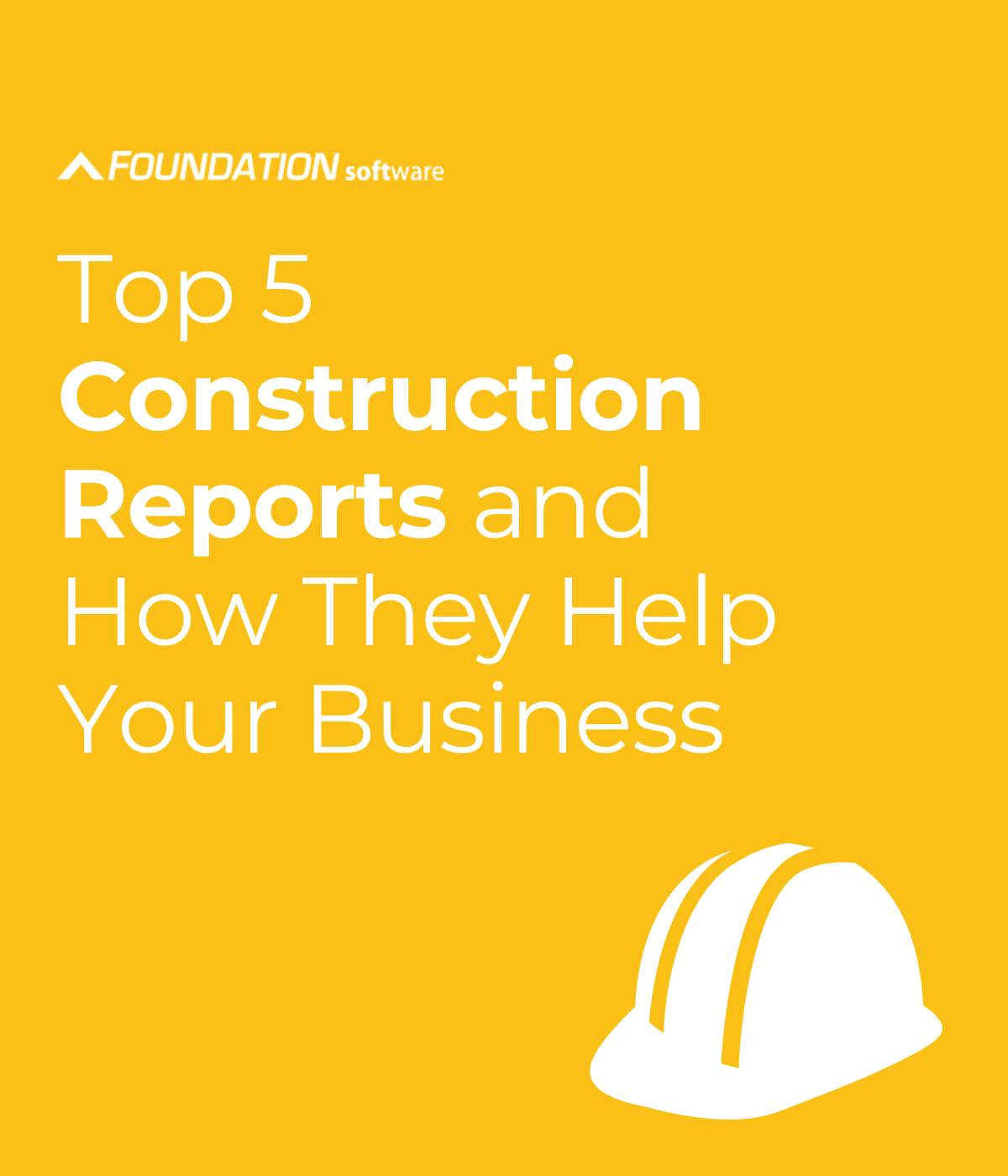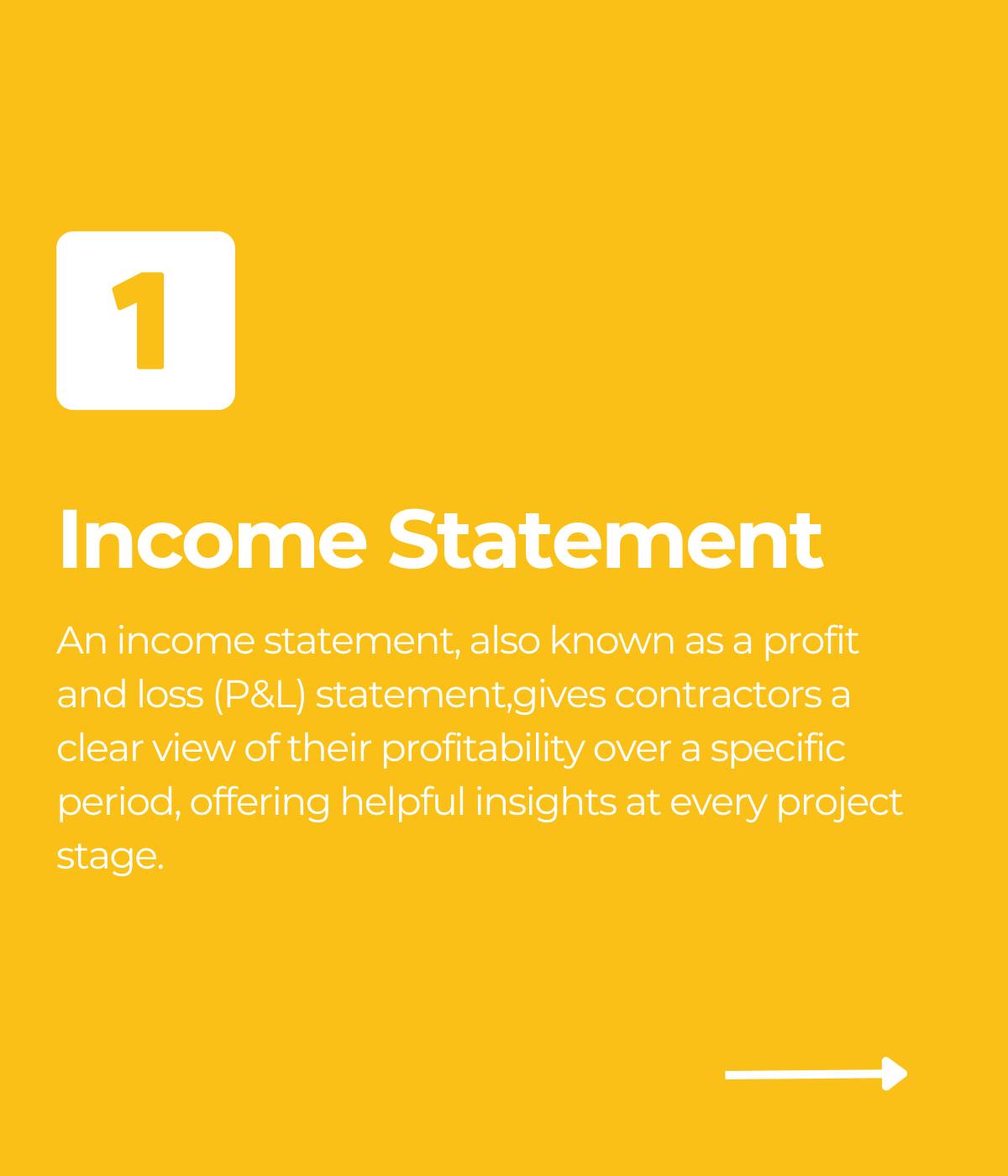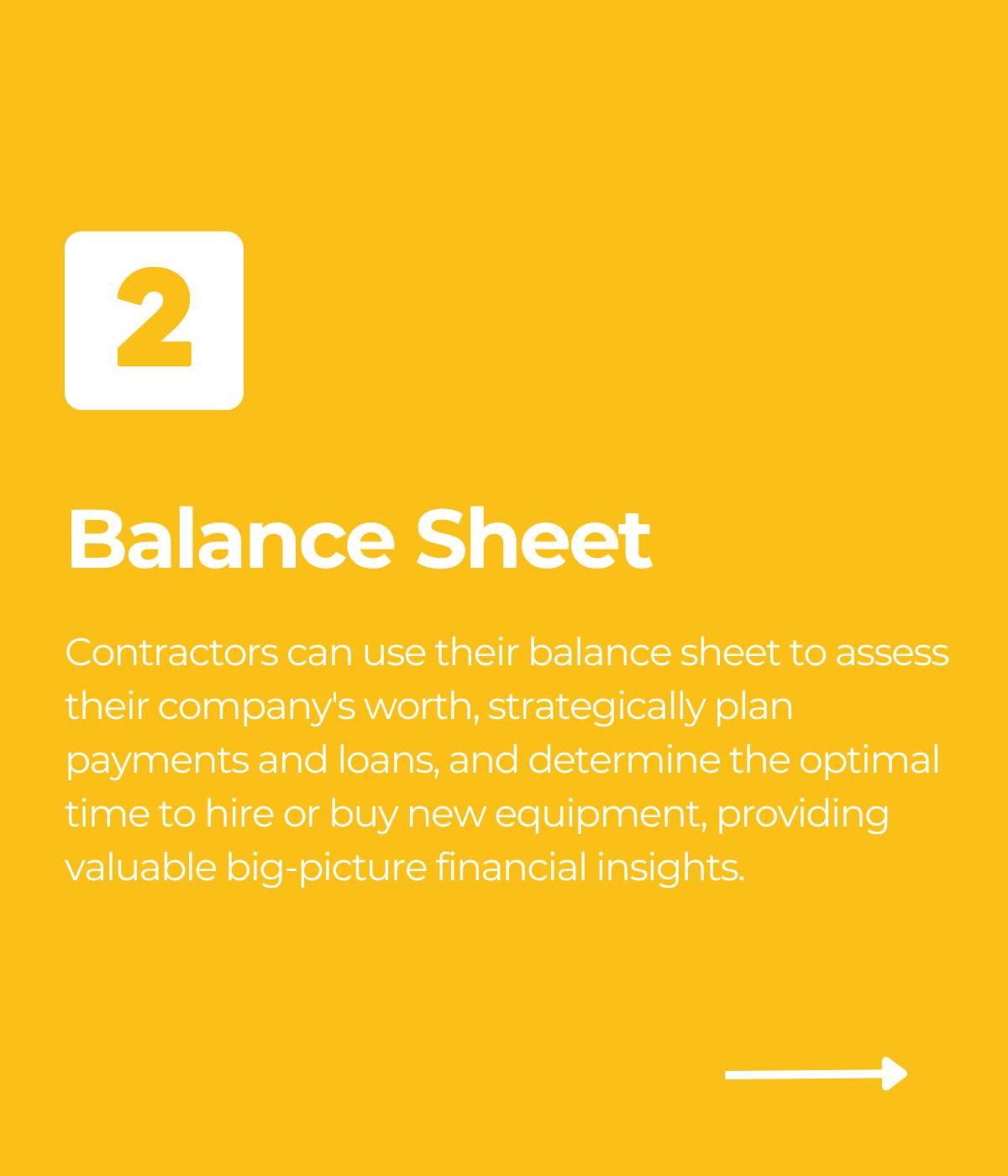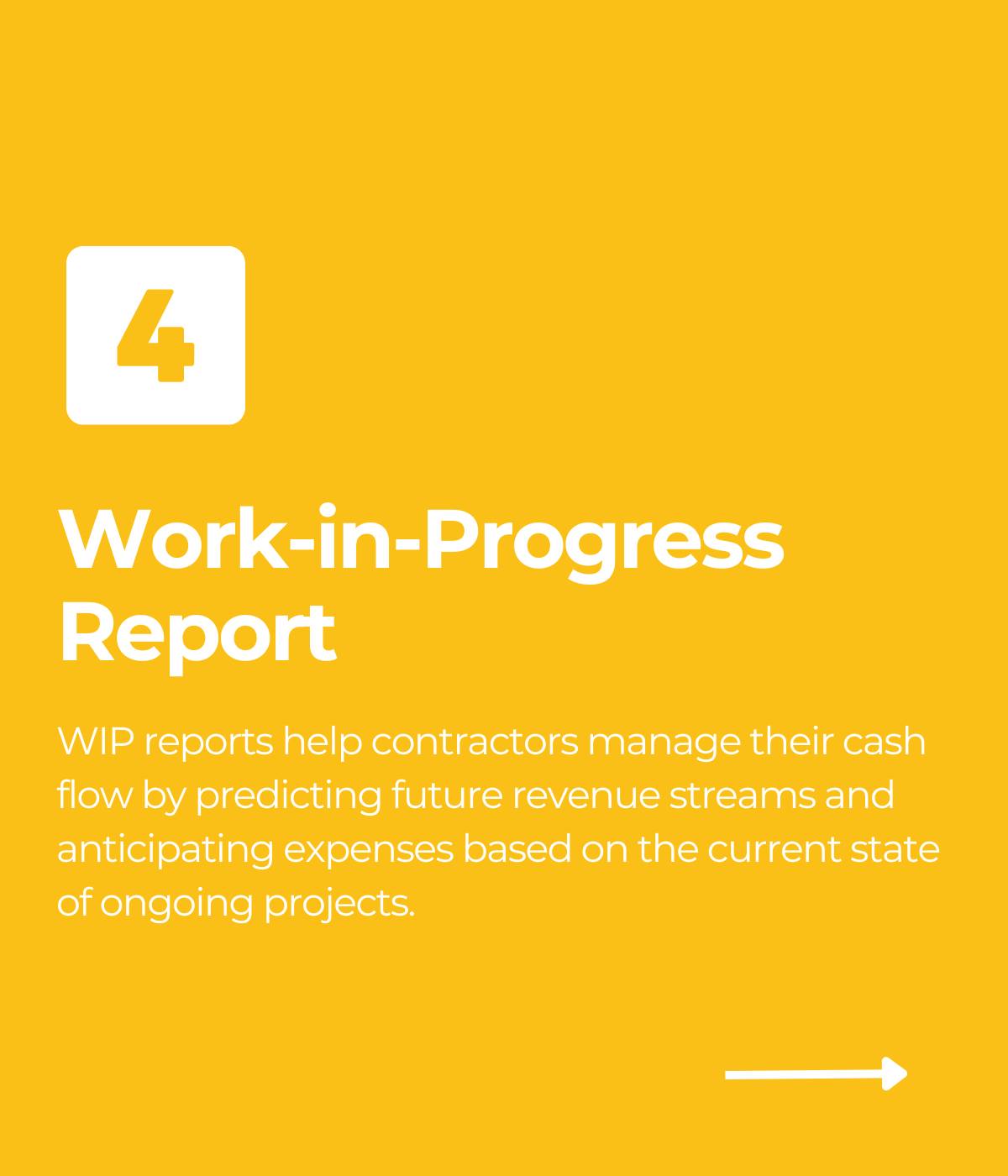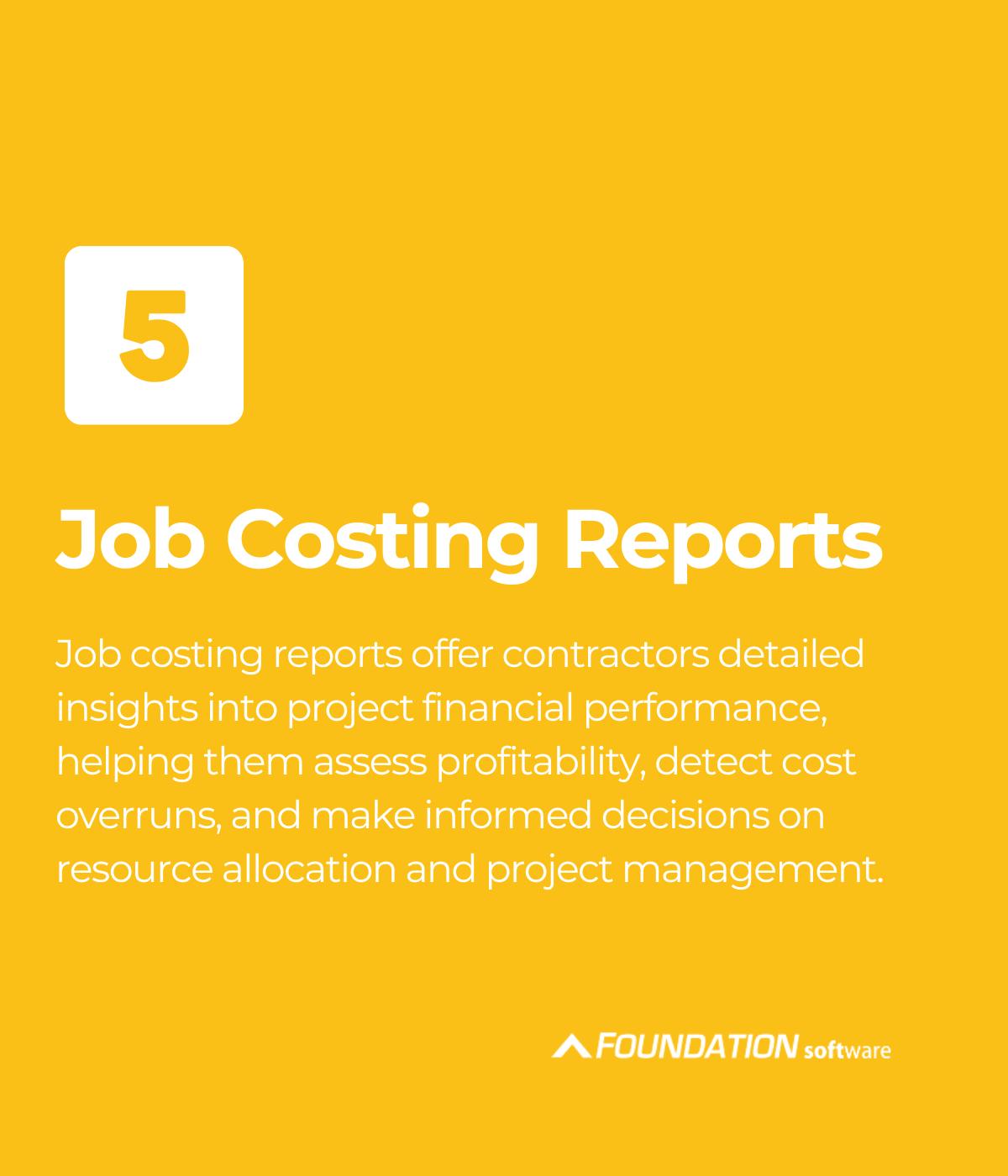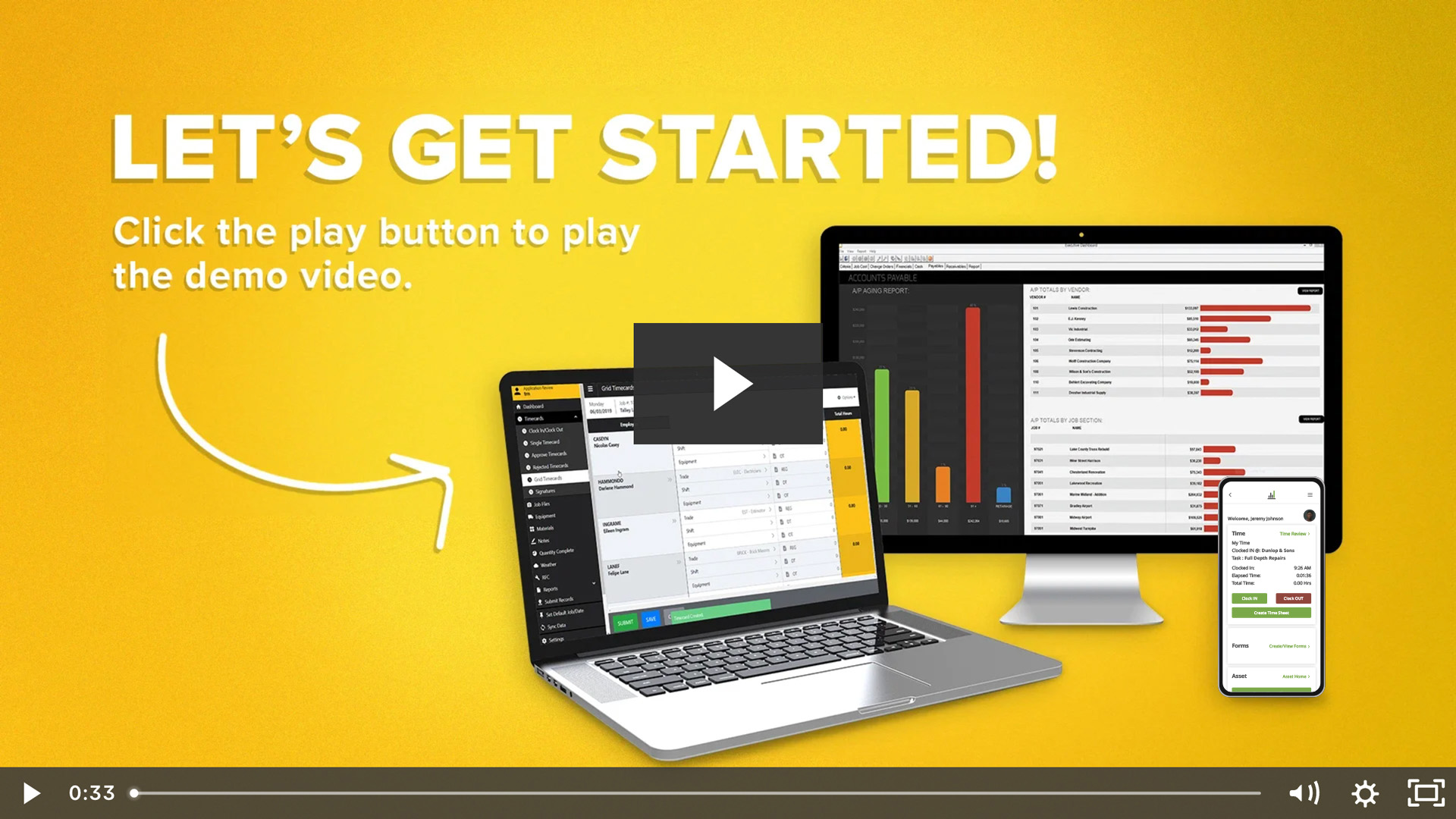
Heavy equipment purchases are on the rise. Following a lackluster economy during the past few years, many U.S. construction companies are investing again in new and used construction equipment.
According to a recent report by the Association of Equipment Manufacturers, the United States construction equipment industry is experiencing growth, and sales of construction equipment are on the rise.
Construction equipment represents the largest capital commitment that a general contractor or specialty contractor can make. Increased fuel prices, higher costs for imported products, and rising inflation can all add to the risk.
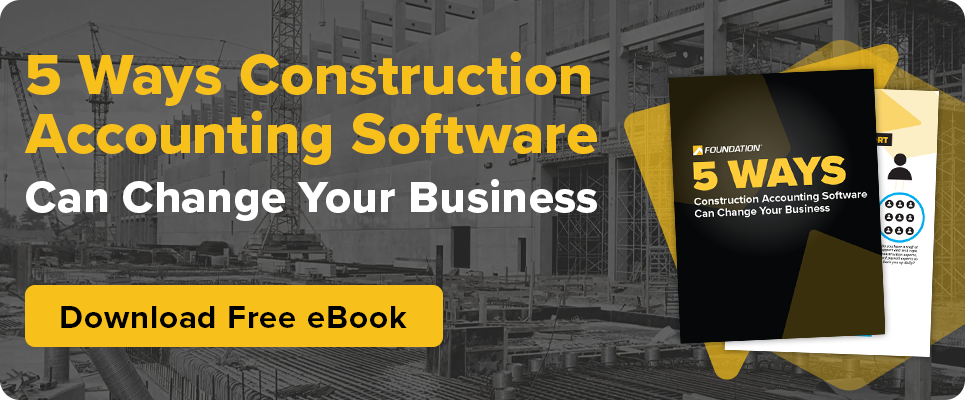
Now, more than ever before, contractors must determine if each piece of equipment is making or losing money for the company — and technology can help.
Key Takeaways For Construction Equipment Management
- Analyze ROI:
- Contractors need to assess if equipment investments are financially beneficial.
- Make Informed Decisions:
- Decide to buy, lease, or rent based on usage, maintenance costs, and crew capabilities.
- Don’t Forget Cost Tracking:
- Use tracking systems to determine equipment profitability.
- Wireless tech helps monitor location and usage.
- Capitalize on Accounting Integrations:
- Employ accounting systems for detailed tracking and maintenance schedules.
- Integrate data with job costing and payroll.
- Complete Expense Analysis:
- Treat each piece of equipment as a “cost center” to analyze profitability.
- Consider Advanced Software:
- Use software like FOUNDATION® for tracking and financial reporting to improve productivity and minimize costs.
Step 1: What’s the Best Way to Purchase New Equipment?
Selecting the right piece of equipment that meets the specific needs of the company is just the first step. The most important is for contractors to spend time determining the equipment’s expected return on investment. This procedure requires careful analysis of the company’s financial situation, as well as a fair amount of educated guesswork.
After selecting that perfect piece of machinery or equipment, contractors must decide whether to buy, lease or rent. Advice from accountants, banks, and surety professionals can help to determine cash flow and tax considerations, as well as available financing and leasing options.
When deciding whether to buy, lease, or rent a piece of equipment for construction, a company should take several factors into account. These might include how often the machine will be used on construction projects, how expensive it is to maintain, and whether or not a member of the crew can legally operate the heavy machinery.
Comparing the projected costs of each financial alternative (buying, leasing, or renting) will help in selecting the option that promises the lowest net cost. If you have an in-house accountant, analyzing these options will give them an opportunity to shine.
Step 2: How Do I Track the Costs of My Equipment?
A company needs many pieces of heavy construction equipment simply to stay in business. But how much does each piece contribute to profitability? Has any piece outlived its usefulness? Without a system for tracking the asset, it is impossible to determine if the equipment has generated any income (or savings) over its lifetime.
More and more fleet managers are learning that keeping tabs on equipment can cut costs significantly. Sales of wireless and Bluetooth technology have exploded in recent years because of their ability to track both the location and use of heavy equipment.
When contractors can move equipment from job to job based on availability and need, they can improve equipment utilization and make more money from their heavy equipment purchases.
Construction owners who put off purchasing new equipment in recent years are also realizing some exciting bonuses with their new heavy equipment purchases. Thanks in part to the Environmental Protection Agency’s regulation of diesel fuels, the technology driving today’s mobile machinery includes sophisticated under-the-hood electronics.
Heavy-duty construction machinery and construction vehicles are now fitted with electronic control modules (ECMs) to monitor and optimize diesel combustion and power transmission. The vast information provided by this technology represents a gold mine for equipment managers, giving them a clearer view of the real cost of owning and operating equipment.
Many construction-specific accounting systems also offer ways of recording detailed equipment information, usually through add-on modules. The best options integrate information as tightly as possible and eliminate repetitive data entry.
For example, when payroll timecards of equipment operators are entered into a payroll module, usage hours for each machine can be updated as well. With jobsite information included on the timecard, the system automatically updates the current location of each piece of equipment.
In addition to maintaining records such as make and model numbers, warranty information and other detailed product information, some accounting systems can track and schedule maintenance and repair work for equipment. The tracking is done through odometer readings, lapse of time or — even better — actual usage hours of the equipment.
With systems that also track fuel usage, insurance, service costs, repair costs, and taxes, owners can maintain a complete history of costs for each piece of equipment.
Finally, in order to have accurate information about the total cost of a job, equipment costs must be calculated and added to each job’s figures.
By assigning job-costing rates as well as idle and downtime costs to equipment, an integrated job-costing software package (with equipment module) can easily break out equipment costs and usage data per job.
At any given point in a job — monthly, weekly, daily, and even hourly — a contractor can produce reports that show how many billable or idle hours the new dozer spent at each jobsite.
Step 3: How Do You Best Analyze Equipment Expenses?
Looking at equipment expenses not just from the perspective of a job but from the perspective of each equipment item can determine if that particular item is making or losing money.
Each piece of equipment should be viewed as its own “cost center.” Just as any contractor worth his salt looks at the profits made on each job, he also should analyze the profits – or losses – made on each piece of equipment.
Purchasing a more sophisticated, equipment-specific job costing program gives the contractor the ability to compare the costs of owning and operating a particular item to the income it generates and to look at the equipment’s profitability per job or across all jobs.
Many programs provide options for recording equipment income, such as using standard billing rates, assigning job costing rates, or entering income on receivable invoices.
Regardless of the income system a contractor uses, the program should produce timely, equipment-specific profit reports.
Considering that heavy equipment vehicles often represent a “lion’s share” of assets for many companies, it’s no wonder that contractors are placing a greater emphasis on their equipment fleet.
Leveraging Technology for Construction Equipment Management
Cutting-edge technology can take much of the credit for this renewed focus on equipment. More and more heavy machines come standard with onboard data loggers capable of recording massive amounts of information.
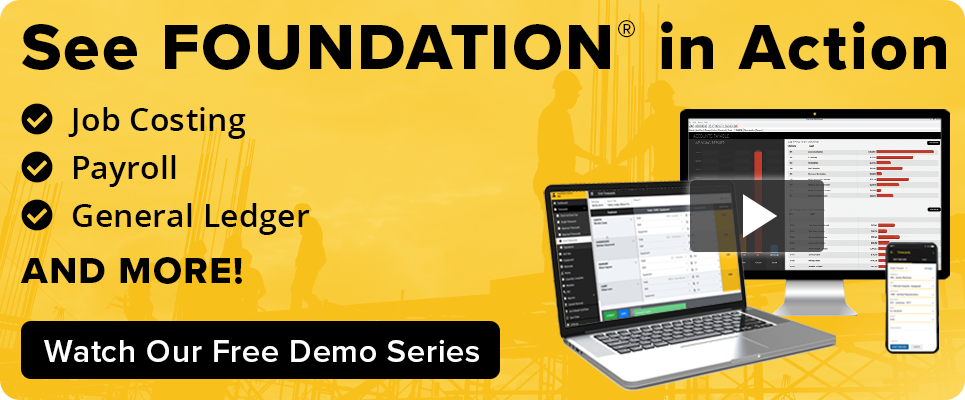
Sophisticated construction equipment tracking software is available to manipulate and report this data. Owners of construction equipment, having emerged from “guestimate” accounting, now have the tools to improve productivity, increase profit, and minimize operating costs.
Contractors looking for software with equipment tracking capabilities should consider FOUNDATION. This industry-leading construction accounting software has all the features needed to automatically track equipment with ease. From job costing capabilities and financial reporting to certified payroll solutions, FOUNDATION has everything a contractor needs for success. Chat with a specialist to learn more!
Share Article
Keep on current news in the construction industry. Subscribe to free eNews!
Our Top 3 YouTube Videos
Learn about our software more in depth with product overviews, demos, and much more!
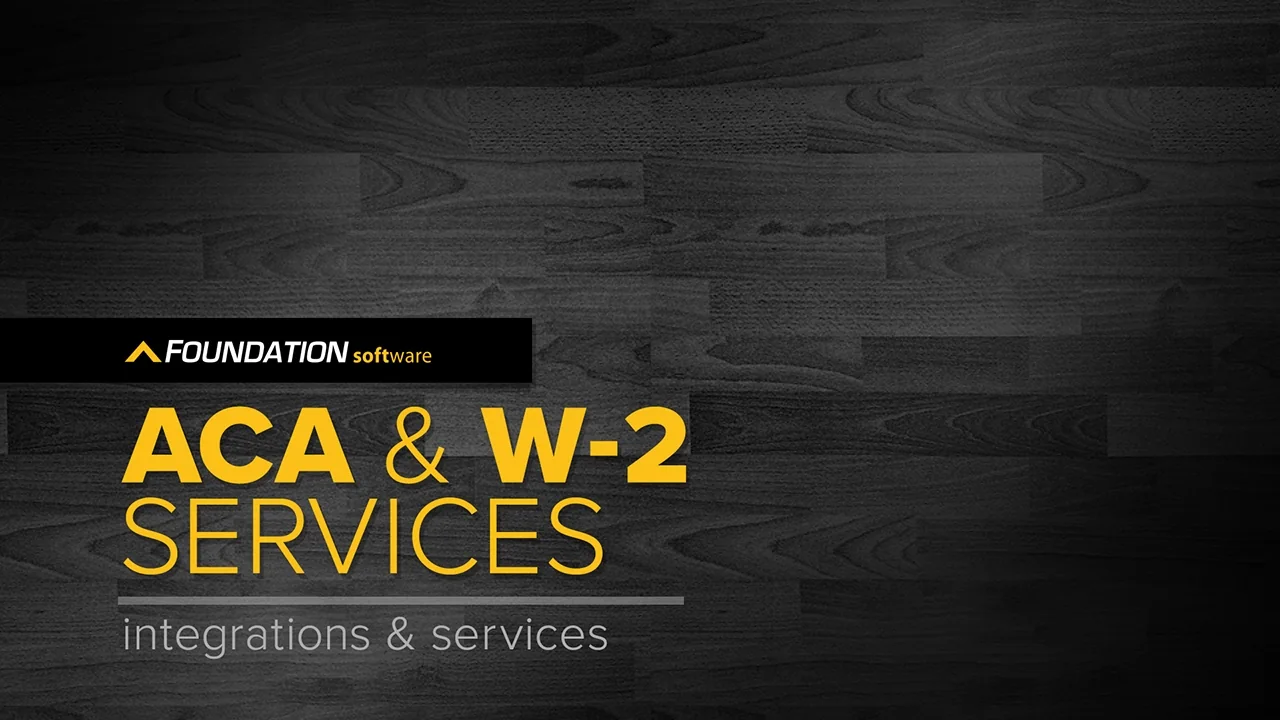
Our ACA reporting & e-filing services include official 1094-C and 1095-C IRS reporting, optional e-filing (no applying for a TCC code required), mailing to your employees and experienced support to help you.

There are plenty of reasons to make FOUNDATION your choice for job cost accounting and construction management software — just ask our clients!
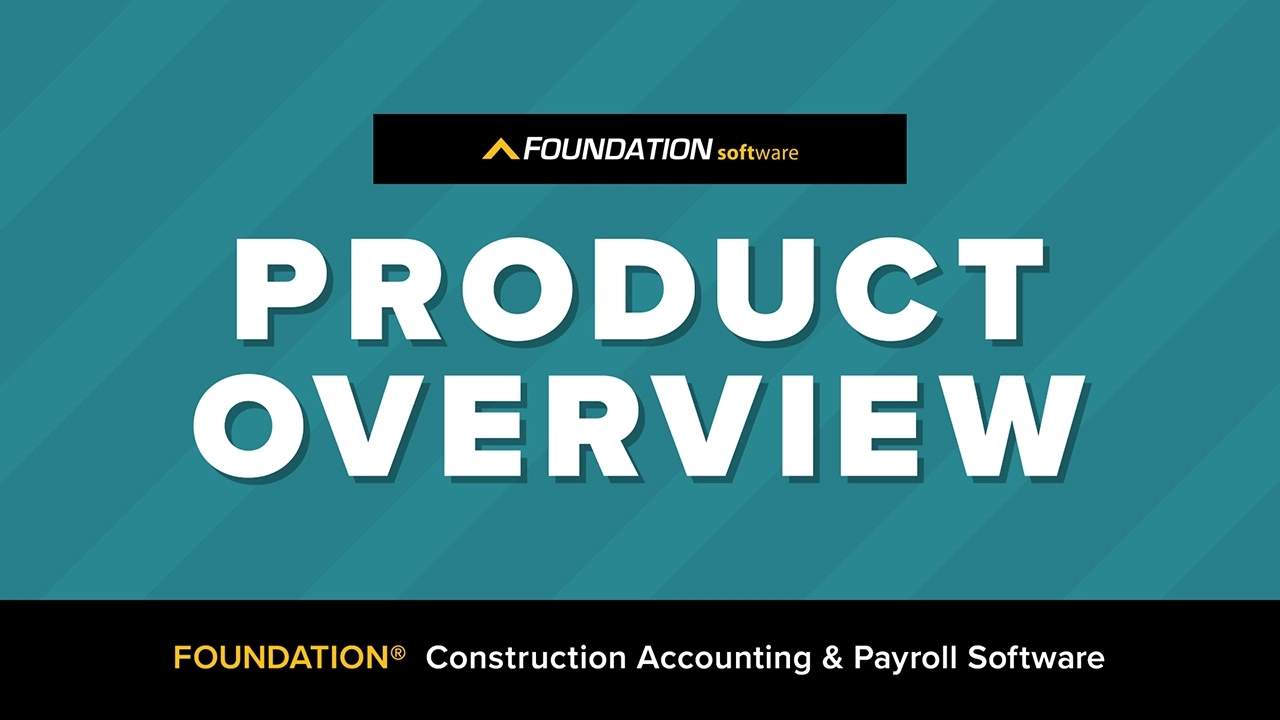
From job cost accounting software, to construction-specific payroll. Get an overview on your next all-in-one back-office solution.



